If it weren’t for the slice of Ebinger’s Blackout Cake wrapped in cellophane and sitting in the fridge behind a jar labeled ‘Manischewitz Borsht with Diced Beets’ and filled with week-old black coffee, I would already be on a Q train headed for school. Then again, if my grandmother had balls she’d be my grandfather. One of the sages said that, I’m pretty sure. Maybe Hillel or Shamai or my Great Uncle Nathan who grew up in Bensonhurst with the Three Stooges. That is, if you counted Shemp as a Three Stooge. Which not everyone did. Giving rise to the Great Brooklyn Pilpul of the 1960s. I’m thinking it had to be Great Uncle Nathan. It was his brand of discourse.
It was a Wednesday morning in late November 1968 (in the year of their Lord, as my Torah teacher, Rabbi Baruch Popovitch, would add), and the baked good delaying my departure for Our Lady of Eternal Tsoris — aka Bais Chana High School for Girls of Brooklyn—was the lone survivor of an Ebinger’s Blackout Cake that had put the finishing touches on Shabbes lunch just a few days prior.
I had come home from school early on Friday afternoon to the seductive smell of chicken soup simmering in an oversized pot on the stove, and the sight of my mother broiling chicken livers over an open flame on the gas range, thus rendering them kosher. The fact that my mother was ‘kashering’ the chicken livers before transforming them into chopped liver was in itself a sign that peace reigned in the Berman household, at least for today. Otherwise my mother would have left the livers for my father to kasher. After all, it was really his job.
But Gert Berman was in a good mood. That is, she hadn’t at that particular moment zeroed in on some minor transgression of my father’s that would fester inside her until it rose like Frankenstein to paint her mood dark and explosive. For now, she was wearing a serene smile, softly singing in that Rosemary Clooney voice of hers, as she rotated the livers to make sure all sides were singed by the fire. I was circling the stove like the seagulls at Brighton Beach who swoop down and pick French fries right out of the cardboard boat you’re holding, hoping my mother would offer me one succulent little liver. She did that sometimes when she was singing in that Rosemary Clooney voice of hers.
That was when I saw it. The perfectly square pale green box, the color of moss or mint, criss-crossed with pencil-thin brown lines and tied together with white and brown string. The signature box of Ebinger’s, the Cadillac of Brooklyn bakeries, sitting there on the counter between the mustard-colored refrigerator and matching stove.
My mother didn’t always buy Ebinger’s for Shabbes. Sometimes she went to Schiff’s Bakery on 20th Avenue and came home with rugelach or a seven-layer cake or, if God was in a magnanimous mood, Charlotte Russe. Or she baked sponge cake or brownies. But sometimes, for no apparent reason, she made the trip to Flatbush Avenue and brought home an Ebinger’s cake, usually the Blackout.
The Blackout Cake was a love song to chocolate. Three layers of velvety dark chocolate cake held together by a luscious chocolate pudding filling, encased in thick, rich chocolate frosting and dusted with chocolate cake crumbs. One bite and you could have sworn the Messiah would be pulling into Penn Station momentarily. I once read in the dentist’s office a profile of Barbra Streisand — patron saint of all ugly Jewish girls growing up in Brooklyn in the 1960s — that said she was to die for Ebinger’s Blackout Cake. Enough said.
By the time the Sabbath Queen had departed on this particular Saturday night, most of the Blackout Cake had been consumed. All except one thin slice, which I had the foresight to hide behind the Manischewitz jar. An act of barefaced selfishness, I admit. But never mind. Come Yom Kippur, one quick painless punch to the breast would erase that ignominious act from the list of atrocities that otherwise might keep my name from appearing in the coming year’s Book of Life. Please. I had been a yeshivah student for all but four of my 17 years. I knew how to game the system.
My original plan was to save the cake for Thursday night, to enjoy while watching the next installment of Peyton Place. But my plans had changed. Because this Tuesday morning I had to ask my mother a question that would be as uncomfortable for me to ask as it was likely to be for her to answer. And for that I needed Blackout cake.
On any other school day I would have skidded into the kitchen, running a little late as usual, where my mother would be sitting at the dinette table, sipping a cup of coffee and eating half an English muffin covered with a thin shmear of cream cheese and a sliver of lox. I’d grab my lunch bag, and maybe a Devil Dog or something equally lacking in nutrition, and kiss my mother goodbye while she scolded me for eating the junk food she faithfully filled the cupboards with each week. My father would have already left for work.
Today, though, my plan was to lead up to the question in question by engaging her in casual conversation. I would join her at the table, pour myself a glass of milk and sink into the last slice of Ebinger’s Blackout Cake. Thus, the cake was a prop, a distraction. But it was also, in no small way, courage. A loyal friend that could be counted on to make me feel all warm inside — even if the conversation went south. I know that sounds whacky, but that’s the way it was with me. When my parents were feuding, when my social life was sliding off the tracks, when I began to fear that high school would never end or became depressed by the realization that it would, Ebinger’s Blackout Cake was there to provide support. A safety net. Of course, the Blackout Cake wasn’t the only thing that could make me feel that way. But who eats kashe varnishkes for breakfast?
Unfortunately, there was a hitch in my plan this morning. And the hitch was Gert Berman.
To be sure, Gert Berman was a woman hard to fathom, much less anticipate. One day she was pulling you out of school for an impromptu trip to Radio City Music Hall to catch a matinee and watch the Rockettes kick in unison; the next day she was refusing to buy you knee socks with functional elastic bands that actually kept the damn things from sliding down to your ankles whenever you contemplated taking a step — drawing even further attention to knees that looked like the sagging faces of two old men who should be sitting in the tea room of some Catskill Mountains hotel playing gin rummy and kvetching about their burgeoning prostates. Well, that’s what you get when you buy the cheap knee socks at Alexander’s or Korvette’s. Honestly, how much more could they possibly cost at Macy’s or, God forbid, Martin’s, downtown Brooklyn’s Holy of Holies?
One particularly frustrating morning, as I considered stapling the infernal socks to my shins, I asked Gert that very question.
“Sure,” she answered, “I’ll run over to Martin’s and take out a mortgage on a pair of socks. If interest rates are good I’ll also buy you some underwear.”
Someone else’s mother might have simply said ‘no.’ But not Gert Berman. She could have taught the great Torah scholar Rashi a thing or two about commentary.
But knee socks notwithstanding, it was my mother’s volatile temper that could really catch you off guard. You never knew what seemingly inconsequential incident would flip the switch, turning Gert’s temper from light to dark, from tranquil to tempestuous, at supersonic speed.
Not that my mother was violent. Not at all. In fact, Gert’s firecracker temper was hot-wired to her sharp, unapologetic tongue, not her pitching arm. Except, maybe, for that one time she threw a lit Shabbat candlestick at my father, the put-upon Izzy. I don’t recall the exact circumstances of that particular incident, but it had something to do with Gert’s homemade Hungarian stuffed cabbage and Izzy’s suit pants, which somewhere along the line led him to utter the insanely naive comment “It’s only a suit.” Before you knew it, one of four sterling silver candlesticks that were a gift to my mother on her wedding day from the mother-in-law she never liked was aloft, flying through the air with an ease reminiscent of the Wallendas.
There were no flying candlesticks this time around. Still, this past Saturday night the switch had been flipped, and the Berman household was engulfed in the fiery eruption of Gert’s volcanic mood.
The carpet was to blame. The peacock blue speckled with lime green shag carpeting that ran wall-to-wall from the dining room through the adjacent living room, down the center hall and up the staircase to the second floor. The carpeting that Gert had purchased at Bigelman’s Flooring on 86th Street, and that was installed the previous Thursday. Gert hadn’t been in the market for carpeting at that particular moment, but how could she say ‘no’ when her cousin Marilyn Bigelman, the store’s proprietor, called to say she had just gotten in a roll of shag carpeting that was not only a reason to go on living but was also a perfect match for the peacock blue sofa that was the magnum opus of the Berman living room? The three-piece, wrap-around, French Provincial sectional sofa with button-tufted cushions so unforgiving they made you feel like you were relaxing on a griddle iron. A sofa so exceptional, Gert had it encased in a durable clear plastic covering that could no doubt be pressed into service as an oxygen tent should any member of the Berman household be suddenly stricken with a life-threatening respiratory ailment.
“I’m tawking perfect match,” intoned Marilyn the Carpet Maven when she rang up my mother to fill her in on the find.
That evening Izzy came home to find his house submerged in an ocean of peacock blue and lime green. He was not happy. He didn’t care about the money or the color of the carpet or even the fact that he had not been previously apprised of its arrival. He was happy to leave such matters to Gert. But he was still in his year of mourning following the death of his father the previous summer, and he considered it disrespectful of the deceased and a breach of Jewish law to purchase anything so lavish until the year had passed.
Not that Izzy voiced his displeasure. He would never do that. Izzy Berman’s aggressiveness was strictly passive. Instead, he brooded for a couple of days, until Saturday night when Gert dragged it out of him. At which point she was happy to fire the first shot. It was, after all, her area of expertise.
From there the battle took its usual course. First, Gert cried and cursed and wished she were dead, or Izzy was dead, or they were both dead. Then she packed a suitcase, announced she was leaving, and retired to the wood-paneled basement where she spent the night on the ugly orange velour pull-out couch. By Monday morning, her mix of suicidal and homicidal thoughts having passed, Gert ceased all verbal communication vis a vis Izzy and enforced a strict grunts-only policy in dealing with me and my sister. She then channeled her ranting and raving into the systematic abuse of drawers and doors and anything else that could be yanked open and slammed shut with the ferocity of Sandy Koufax on the mound. Pitching in a World Series game. When it didn’t fall on Yom Kippur.
By dinnertime Monday, I was pressed into service to ping pong between my warring parents.
“Libby, ask your father if he wants soup or gefilte fish,” my mother instructed me as we sat down to dinner at the kitchen table just steps away from where she stood at the stove, ladle at the ready.
“Ask your mother what kind of soup,” my father answered before I could pose my mother’s question.
“Tell your father mushroom and barley.”
“Tell your mother I’ll have gefilte fish.”
At which point Gert handed me a bowl of mushroom and barley soup to set before my father.
And that’s where things stood on Tuesday morning, as I sat in my room dressed and ready for school, wondering which way the wind was blowing on the deck of the Titanic. Finally, trepidatiously, I made my way down the stairs and walked down the hallway into the kitchen where my mother sat at the dinette table nursing a cup of coffee and ignoring her English muffin. She looked up and gave me a grunt. I quickly surmised it would be best to make a hasty exit. The question I had wanted to ask would have to wait. So would the cake.
“There was a piece of Blackout Cake…” I said, holding the refrigerator door open and looking for the hidden cake plate. I was completely lacking in self-control.
Gert took another sip of coffee and picked the lox off the English muffin.
“I gave it to your father,” she said.
“Hey, Lib, I tried calling you last night but my idiot sister was hogging the phone.”
Dalia Ehrenkranz sauntered over to where I stood stuffing my coat into my locker in the basement of Bais Chana. Dalia and I had been best friends since kindergarten. We were an incongruous pair. She was three inches taller than me, with smaller boobs and broader hips. She was pretty, but her real appeal was ethereal. She possessed some indefinable quality that was, like a captivating fragrance, impossible to hold and impossible to resist. Small wonder Dalia was continually trailed by a litter of love-sick boys wagging their hormones behind them.
I had none of that. But I had something else. I had a better brain, a sharper mind. I may have been a classic underachiever, as more than one teacher had informed my parents, but then I would surprise everyone by scoring way high on my SATs or finishing the Sunday New York Times crossword puzzle with no help at all. I was smart, and I knew there were boys out there — even cute teenage ones — who were attracted to girls like me. Unfortunately, the subway didn’t stop on planet Vulcan.
“Which sister?” I asked.
Dalia was the eldest of five daughters. Her house was a treasure trove of idiot sisters.
“The lovely Renana.”
“Ah, the Princess of Avenue P. Well, I came looking for you yesterday after Rubinstein’s class, but Penina said you got kicked out.”
“That is correct. I was engrossed in an in-depth discussion about world affairs with Miriam Konofsky when the esteemed Rabbi Doctor called on me to read. Needless to say, I did not know the place.”
“Shame on him. And there you were, deliberating the implications of the Soviet invasion of Czechoslovakia.”
“Exactly. Although, I believe at the time we were deliberating whether or not Dustin Hoffman should or should not have slept with Mrs. Robinson, and how Elaine could possibly sleep with a guy who slept with her mother.”
“Also an important topic.”
“I thought so. Of course, I managed to talk my way out of it the first two times he called on me, but for some reason he seemed to take the third time very personally.”
“It’s always about him, isn’t it?”
“That’s what I said. Only I probably shouldn’t have said it out loud.”
“So for that he kicked you out?”
“Not exactly. For that he told me to go to the chemistry room and evaporate. I took that to mean I was getting kicked out, but maybe I was overreacting.”
I snorted. I meant to giggle the playful, flirtatious giggle I had been practicing ever since Rivky Lewinsky told me that boys like that. Rivky had served as my personal guru since freshman year when she took it upon herself to teach me the correct way to insert a tampon. If there exists a greater mitzvah I don’t know of it. As for the giggle, I was still working on it.
“So, did you ask your mother?” Dalia wanted to know.
“No. The timing wasn’t right. I’ll ask her tonight. But I’m telling you, the answer will be no.”
“And I’m telling you you’re wrong.”
God knows, I wanted to be wrong. In fact, I had wanted to be wrong ever since yesterday — Monday afternoon, fourth period — when Rebbetzin Goldzweig finally introduced her students to the topic of mikveh — the ritual bath.
It was about time. We had been taking the class in Taharat Hamishpocha — the Jewish laws of family purity — since the start of senior year and we still hadn’t gotten to the good stuff. Whatever the hell the good stuff was. Only seniors were allowed to take the class we had dubbed “sex ed for Jews” and, as if by unspoken agreement, the initiated did not reveal to the uninitiated the mysteries demystified behind the classroom’s closed doors. Not knowing had only heightened our sense of wonder and anticipation.
I had heard a disappointing rumor that the class covered topics like the proper way to kosher a slab of meat or pluck a chicken’s errant feathers, but I doubted its veracity. Anyway, with the sexual revolution in gloriously uninhibited swing everywhere but Bais Chana — and given that my sexual experience was limited to a couple of make-out sessions on the Staten Island Ferry with Gary Zwerling and a fling with Heshy Abramchick in which our most romantic date was to a Student Struggle for Soviet Jewry rally in front of the UN— I was eager to grab whatever tidbits of knowledge were thrown my way, even if they were bathed in Judaism and even if they included a dissertation on the unplucked chicken.
That Rebbetzin Goldzwieg was tasked with imparting to young women as snow-driven as we were the beauty of the laws of family purity was unfortunate. A small wiry woman with severely stooped shoulders that made it look as if she were waging a perpetual battle against the wind, the rebbetzin arrived in class each week wearing one of several look-alike long-sleeved dresses that came in a variety of muted colors and skimmed her ankles. Every wisp of hair was tucked tightly beneath a black felt hat pulled low over her forehead. The hat only accentuated her long nose, high jagged cheekbones, and washed-out khaki-colored eyes that could have passed for liver spots. She could have been 40 or 140. It was hard to tell. It was also hard to believe she had actually ever had sex, much less knew enough to talk about it.
Rebbetzin Goldzweig was enthusiastic, I’ll give her that. She became positively possessed when she talked about building a Jewish home and creating a Jewish family — bouncing around the room with the fervency of a true believer. It was like watching Rumpelstiltskin dance maniacally around the campfire.
“Always remember,” she intoned on the first day of class, wagging her finger like a tuning fork and raising her shrill voice so that it poked through the ozone, “you are the daughters of queens! You are royalty! It is left to you to carry the Jewish people through to the next generation and the next and the next!”
By class two she was engaging in the popular Kabbalistic sport of rearranging Hebrew letters to prove her point.
“The word in Hebrew for home is ‘bayit.’ Take away the middle letter — the ‘yud’ — and you are left with ‘bat’ — daughter. This means the woman not only creates the home…she IS the home. You are the home!”
Game. Set. Match. Rebbetzin Goldzweig threw open her skinny arms in triumph.
In class three we learned how to kosher meat and pluck a chicken.
By class four I had tuned out the Rebbetzin and replaced her with daydreams of me and Steve McQueen. Or me and Robert Redford. Or me and the heart-stoppingly beautiful guy with wavy black hair and a cigarette dangling between his thumb and forefinger who worked at the auto body shop across the street from the school. The brooding bad boy with the sinister swagger whom none of us knew and all of us loved madly. Forbidden fruit.
Two weeks later, I was awakened from my reverie by Jewish sex.
Well, not sex exactly. Even Orthodox Jewish girls from Brooklyn knew about that. What we expected to hear about, what we wanted to hear about, what we hoped to come away with — or at least I did — was an understanding of sex as an act of beauty, as erotic romance, as a spiritual awakening. Sex as the bond between a man and a woman. The sanctity of coupling. We were teenage girls, after all. Orthodox Jewish teenage girls, at that. We wanted romance with a side of spirituality. Was that too much to ask?
Evidently, yes. Rebbetzin Goldzweig could have – should have — talked about the centrality of the mikveh to the continuity of Jewish life. She could have explained how each month a woman’s body prepares to welcome a new life and how menstruation signals the end of that possibility. How water is a source of life and, as such, immersion in the mikveh is a rebirth — the promise of hope and redemption. She could have gone on to paint an impressionistic picture of the erogenous renewal of the marriage — the husband and wife reuniting sexually after the completion of the ritual of the mikveh. She could have cast Judaism’s consecration of human sexuality in a divine light. Something beautiful and meaningful to believe in.
She did none of that. Instead, Rebbetzin Goldzweig gave a recitation outlining the dos and don’ts of family purity that sounded very much like she looked. Stark and colorless. A guide for the perplexed and the who-gives-a-shit. Sleep in single beds. Don’t touch. Count seven clean days. Go to mikveh. Strip. Say a prayer. Dip. Return home. Rinse. Repeat. And here’s a helpful tip: if you’re not sure your period is over and done with for the month, take your panties to the rabbi.
And then, the coup de grace.
“Be sure not to miss a single visit to the mikveh,” she warned. “Because when a baby is born of a mother who kept the laws of family purity, that child is considered to have been conceived in holiness and comes into life blessed. But a child born of a woman who did not go to mikveh comes into this world bearing a mark. A mark! God forbid it should ever happen to your children.”
I looked around me. No one seemed fazed by the Rebbetzin’s parting zinger. If anyone had even heard it. I began chewing on the cuticle of my thumb.
“A child born of a woman who did not go to mikveh comes into this world bearing a mark.”
A throw-away line. An afterthought. Oh and by the way, if your mother was a godless slut, your life is destined to be overcast by a black cloud that will darken your days, to say nothing of your soul. Class dismissed.
“What did she say?” I whispered to Sandy Teplitsky who sat at the neighboring desk.
“No clue,” said Sandy, who continued to flip through the pages of Modern Bride magazine in anticipation of her upcoming wedding to some boy she had yet to meet.
I wanted to ignore the comment like everyone else seemed to be doing. But not everyone else had Gert Berman for a mother. Gert, I felt confident in concluding, didn’t seem to like either my father or sex well enough to dip herself in a communal pool once a month. Not without the barrel of a loaded gun held flush against her temple. Then again, with Gert when it was bad it was bad, but when it was good it was not so bad. So who knew?
“Don’t be ridiculous, your mother goes to mikveh every month just like my mother, just like everyone’s mother,” Dalia assured me when I caught up with her at lunch.
What did she know? Her father was the rabbi of a Modern Orthodox synagogue just a few blocks from the school. Besides, her parents were high school sweethearts who still laughed at each other’s jokes. There was no question her mother went to mikveh.
“I don’t know about that,” I said.
“Look, Lib, you probably just don’t realize she’s going. It’s a very private thing. You go quietly, you come home quietly, and then… you knowwww…” Dalia dipped her head coyly, stretching out the ‘you know’ like it was a piece of taffy.
“Anyway, if it’ll make you feel better why don’t you just come right out and ask her?”
“Say what? Hey, Gertie, going for a dip?
“There you go.”
But that evening the rapprochement between Gert and Izzy had not yet begun, making the moment ill-advised for a question as delicate as the one I was planning to ask. And the next morning, as noted, the game was called on account of no Blackout Cake.
By the time I walked into seventh period Tuesday afternoon— the last class of the day — I had spent more than a few introspective, angst-filled hours examining my 17 years under the callous light of my newly discovered darkness. A this-is-your-life inventory of all the mishaps and misfortunes, missed opportunities and moments lost, over the short course of my apparently miserable existence: The brand new Barbie pencil case lost on the first day of first grade. The hideous eczema that kept resurfacing like an irritating, unwelcome relative. The murder by cracked shell of Barney the Turtle, whose ill-fated escape from the little turtle tank in my bedroom ended in tragedy when my father accidentally crushed him underfoot. My short, thick waist. My fat, pudgy fingers. My berserk hair that needed only to smell humidity in, say, Des Moines to spring into a frenzied, frizzy mess. And, oh yes, my knee socks.
“LeeeBeee, you speak French like a Spanish cow.”
I was just adding to the tally my inability to play piano by ear when Mademoiselle Lipshitz broke in with what was, in my opinion, an unnecessarily mean-spirited critique of my recent oral report on the cheeses of France. To make matters worse, she delivered it in that breathy faux French accent that made me want to shove a hammer down her throat and nail shut her voice box.
The pitiable Mademoiselle Lipshitz was a mousy-looking woman who, it was rumored, still lived at home with her parents despite the fact that she was teetering on the brink of middle age. That fact made her sex life, or lack thereof, the subject of endless speculation among those of us at Bais Chana who aspired to have sex lives of our own, preferably some day soon. I often thought she might have better luck with men if only she would abandon some of her more repugnant habits, like blowing her nose into a daintily embroidered hanky, then separating the folds to examine the color and consistency of her mucous. This in the middle of a lesson. It made her hard to love.
It wasn’t the first time the unlovely mademoiselle had likened my French to that of a Spanish cow and most of the time I ignored it — mainly because I had no idea what that even meant. But today I was in a mood.
“Pardon me for saying so, Mademoiselle, but you seem to have a rather macabre obsession with Spanish cows. Is there something you’d like to share with the class?”
As requested, I gathered up my books and headed down the back staircase for the sanctuary of Bais Chana’s locker room-cum-gymnasium in the building’s basement. But when I hit the second floor landing, I stopped in my tracks. Looking out the oversized window onto East 16th Street, I saw him pull up onto the dirt lot off to the side of the auto body shop and climb off his motorcycle. He wore worn-out black jeans over badly scuffed black leather boots and a black leather jacket, unzipped and collar up, with a plain black tee beneath it. There appeared to be a necklace dangling around his neck. Maybe a crucifix or the image of a saint. I could see the glint of gold, but nothing more. Even from two stories up he reeked of something irresistibly dark and dangerous. Something that made everything within me tremble and throb. The brooding bad boy. Forbidden fruit.
Wait. Forbidden fruit for whom? Not for me. Not for one who was already irrevocably, inescapably, irredeemably sullied. It slowly dawned on me that here I was bemoaning all the ways in which the mark had put an indelible hex on my life, when I should be salivating over the many delectable fruits, previously forbidden, now dangling provocatively within my reach. After all, tarnished is tarnished. Instead of looking at the mark as something damning, I should look at it as something liberating. In short, I could have that beautiful bad boy. Well, maybe not actually have him. He would of course have to agree to be had, which was an obstacle not likely to be overcome, and then there was the fact that he scared the crap out of me. But still, I was free to contemplate the having of him.
I was free. Free to set aside the constraints of my upbringing, my Brooklyn shtetl, and taste of the big bad wonderful world beyond its borders. I could do all the things an Orthodox Jew was forbidden to do. I could watch TV on Friday night or take a Saturday subway ride to somewhere, anywhere. I could eat bacon and cheeseburgers — and pizza from an authentic Italian pizzeria like the ones under the El in Bensonhurst. I could walk into a church and sit in a pew and kneel. Not that I wanted to kneel in church. But if I did, I could. Would I combust? Who cared? I was doomed to combust anyway. I was marked. And because I was marked, I was free to be like everyone else. Everyone else who wasn’t like me.
Newly liberated, I pushed open the door to Bais Chana’s basement and was almost sideswiped by a band of stampeding sophomores. The class was trailed by Dr. Hedythe Liebkin, who was pounding a bongo while the girls, wearing sweatpants and tees, ran up and down the rows of lockers. Welcome to the Our Lady of Eternal Tsoris athletics program.
“Vone, two, sree; vone, two, sree,” Dr. Liebkin called out, her plump breasts rising and falling to the beat of the bongo slung over her shoulder. And with each smack of the bongo yet another sophomore banged her knee into the corner of a wooden bench anchored to the cement floor in front of the lockers.
“Vone, two, sree…vone, two, sree!”
In fairness, running around the gym was not the sum total of the Bais Chana athletics curriculum. Sometimes, weather permitting, we slipped on our skirts over our sweatpants — a nod to the god of misplaced modesty — and headed outdoors to the blacktop for a game of basketball. Not that any of us actually knew how to play the game — least of all the Austrian-born Dr. Liebkin, who once praised Mona Levine for “hitting it out of the park” when she sank a shot from half-court, and who admonished us to “play nice” when we tried to block an opponent by standing in front of her and listlessly raising our arms. Then again, could Wilt Chamberlain pluck a chicken?
I perched myself atop a discarded desk in the corner of the room and watched Dr. Liebkin bounce around the so-called gym like a rosy-cheeked cherub. She was a sweet-looking woman with kewpie-doll lips, round Betty Boop eyes and an exquisitely delicate nose, all huddled together in the middle of her face like the last few bruised cherries bunched together at the bottom of the bowl. Sometimes, when banging the bongo made her hot and sweaty, she pushed up her long sleeves, giving us a peek at the six blurred numbers tattooed on her forearm.
It didn’t surprise us. We were all, every one of us, closely related to survivors of the Holocaust. The remnants of European Jewry. Some had a parent who had survived. Or both parents. Maybe even an aunt or uncle. Some had a distant cousin whom their family had helped resettle in America. I had heard all the stories. I knew that Esther Kornfeld’s mother was so emaciated while a prisoner at Auschwitz that she was able to escape by slipping through the bars of a window as she stood on line to the gas chamber. Her sister, with whom she stood, was not as lucky. I knew that Mendy Tischler’s father had escaped with his two brothers from the clutches of the Nazis by jumping out the second-floor window of their family’s apartment somewhere in Poland and escaping into the forest, where they joined a group of partisan fighters. I knew that Malkie Frommer’s mother walked with a permanent limp, an aftereffect of the Ravensbrück death march. And on and on.
They were the survivors. The ones who lived to tell the story. And we were the ones entrusted with their memories. The ones who would ensure that their stories survived even after they were gone. We may have been Little Leaguers when it came to sports or sex, but when it came to the Holocaust we were the varsity team. This was our legacy, whether or not we could yet articulate it.
But beyond the tattoo and what it signified, we knew little about Hedythe Liebkin. What neighborhood she lived in. What kind of “doctor” she was. Whether she had a husband and children. Whether her family had perished in the camps. We just knew she was one of us.
Five minutes before the bell rang, Dr. Liebkin silenced her bongo and sent students to their lockers to prepare for dismissal. I was killing time by perusing the notices on the student bulletin board that hung on the wall not far from the supply closet, to which Dr. Liebkin was returning the bongo. Really, I was staring blankly at the board, silently considering my recent epiphany that ‘the mark’ — my mark — might be as liberating as tampons.
“And to which teacher do we owe this pleasure?”
I turned to see Dr. Liebkin standing beside me, speaking in her thick Austrian accent. She didn’t have to be told why I was kicking around the locker room. It wasn’t the first time I had escaped there, only to find the good doctor and her students cantering around the lockers.
I liked Dr. Liebkin. It was hard not to like a gym teacher who called each of her students “mameleh,” and who looked as if she was in actual physical pain when you told her you couldn’t participate in gym class because your period was giving you terrible cramps. Even though you had made the same claim the week before.
I decided to test the waters.
“I was just thinking about what we learned yesterday in Taharat Hamishpocha about mikveh,” I said with studied nonchalance, keeping my eyes fixed on the bulletin board.
“Ah,” she nodded her head knowingly. “Such a beautiful mitzvah.”
I was stuck.
“Right,” I said.
“So beautiful. So meaningful. I remember my mother — may her memory be for a blessing — when it was her time to go to mikveh, she went. In the bitter cold, in blizzards. Once, there were rumors the Nazis were roaming the streets looking for Jews to torment, I begged her to stay home and go the next day, but she wouldn’t. A mitzvah won’t wait, she told me. I like to think that the holiness of the mikveh wrapped around her and eased her journey when she came to her end.”
“She was killed in the street?” I asked horrified, turning to look at her full-on.
She shook her head.
“No. But not long after. In Auschwitz. She went to the gas chambers holding my little sister, Shaindele. Just four years old. My father and three brothers also.”
She was quiet for a moment, her thoughts far away. Then the shadow of a sad smile swept over her face.
“But the mikveh — the act of being spiritually purified, the holiness of the process, the feeling of an intimate connection with God… That blessed her. It blessed all of them. And it carried them into the next world. I’m sure of it.”
I wanted to shout at her. Did she not recognize the inconsistencies in her belief? The sanctity of the mikveh’s purification had embraced them, but it had not saved them. It had not protected them. What good was it?
But, of course, that wasn’t the point. The point was not what the mikveh had or had not done for her family. The point was what the mikveh had done for Dr. Liebkin herself. And what it had done was give her the strength to comprehend the incomprehensible, to make sense of the madness. It had given her the power to prance around the Bais Chana locker room, leading a bunch of spectacularly uninspired and uncoordinated teenage girls through a subterranean maze of metal lockers, as if it were the privilege of a lifetime. It had brought her through the darkness and allowed her to heal. It had given her back her life. And not because she was able to somehow rationalize the inconsistencies. But simply because she believed.
I wasn’t sure I did.
Religious belief is an art form. You can learn your lessons well, follow all the steps, but if you don’t have a talent for it — if it isn’t a part of your core, if it isn’t imbedded in your soul — you will never truly master it. You will never produce a great work of art. Sometimes I watch the girls in their long skirts who sway — who shuckle — feverishly as they pray; who know all the right blessings to say over every kind of food, over thunder and lightning and rainbows. The girls who won’t speak a word of gossip — not because it’s not right, but because it’s against Jewish law. The girls who will some day go to mikveh. Even if Nazis roam the streets. Those are the girls with the talent.
But not me. True, every once in a while I attempt to ignite my religious devotion. I spend days, maybe weeks, swaying ecstatically as I pray, swinging my shoulders from side to side like a tree caught in a hurricane. I meticulously utter the blessings, most of which I don’t know by heart and have to look up. I go through all the right motions with as much ferocity as I can muster. But the essence of spirituality continues to elude me. Because religious belief is an art form for which I have not one whit of talent.
That doesn’t make me a non-believer. It makes me a not-sure believer. I don’t exactly believe there exists a mark. But I don’t exactly believe there doesn’t.
When I walked through my front door around dinnertime, my mother was standing at the stove stirring a pot of homemade chocolate pudding, the kind with the skin on the surface that I was never sure I really liked. The 12” black-and-white TV that sat on a snack table in the corner of the dinette area was turned on, and my mother was laughing at something the comedienne Totie Fields was telling Mike Douglas on his afternoon talk show. It appeared the storm clouds in the Berman household had blown over and the skies were blue.
“Your father won’t be home till late, and neither will your sister,” my mother told me as I walked into the kitchen and kissed the cheek she was offering up.
“Go change and I’ll feed you.”
I went upstairs, threw my skirt and blouse over the back of my desk chair and slipped into an old pair of jeans and a tie-dyed t-shirt.
On the way home I had given up the idea of asking my mother whether or not she went to mikveh. Rebbetzin Goldzweig could take her mark and prey on the ignorance and insecurities of some other semi-faithless soul. It didn’t make one bit of difference to me. It certainly wasn’t worth garnering the courage I would need to pose so personal a question to my mother, for whom I strongly suspected the subject of sex would be a non-starter. And with no Ebinger’s Blackout Cake to back me up, no less.
I walked back into the kitchen, pulled out one of the wrought-iron chairs at the dinette table, and sat.
“So, how was school today?” my mother asked, still fussing at the stove.
“Fine,” I said, with no intention of elaborating.
She walked over and placed my dinner in a front of me.
Kashe varnishkes.
“So, Ma,” I said, “can I ask you a question?”
 Born and raised in Brooklyn, New York, Judith Jacobson spent several years living in Jerusalem and London before returning to her beloved New York in the late 1970s. She was working as an editor at a professional publishing house and living blissfully in Manhattan when the fates swept her north to Connecticut’s Hartford County, where she has lived since 1988. Currently the editor of the Connecticut Jewish Ledger, she has spent the bulk of her career as a writer and communications professional in the non-profit world. Along the way, she also spent a decade as an adjunct professor of communications at the University of Hartford and, while living in Manhattan, enjoyed a brief but brilliant career as a stand-up comedian.
Born and raised in Brooklyn, New York, Judith Jacobson spent several years living in Jerusalem and London before returning to her beloved New York in the late 1970s. She was working as an editor at a professional publishing house and living blissfully in Manhattan when the fates swept her north to Connecticut’s Hartford County, where she has lived since 1988. Currently the editor of the Connecticut Jewish Ledger, she has spent the bulk of her career as a writer and communications professional in the non-profit world. Along the way, she also spent a decade as an adjunct professor of communications at the University of Hartford and, while living in Manhattan, enjoyed a brief but brilliant career as a stand-up comedian.

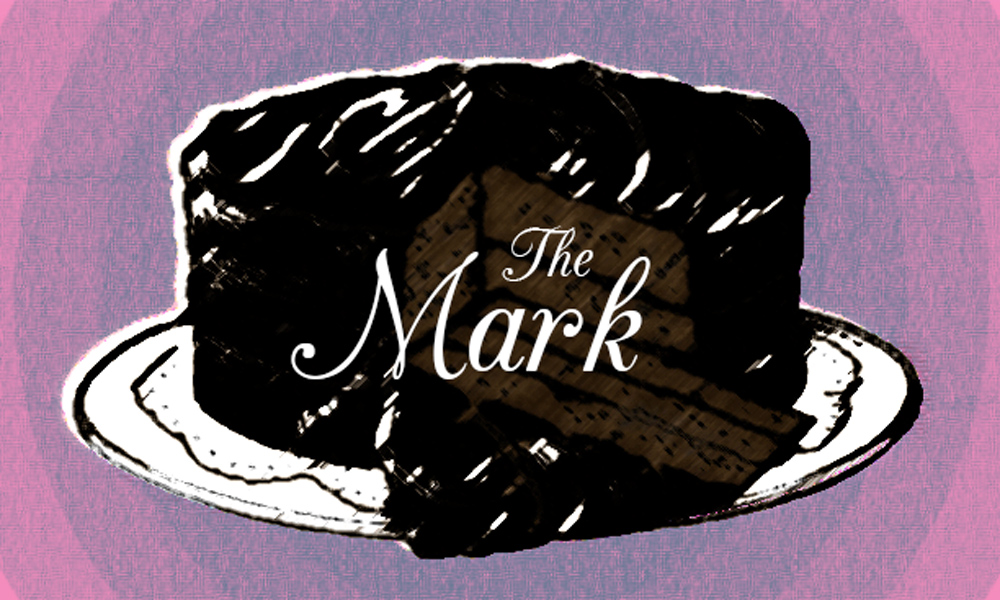


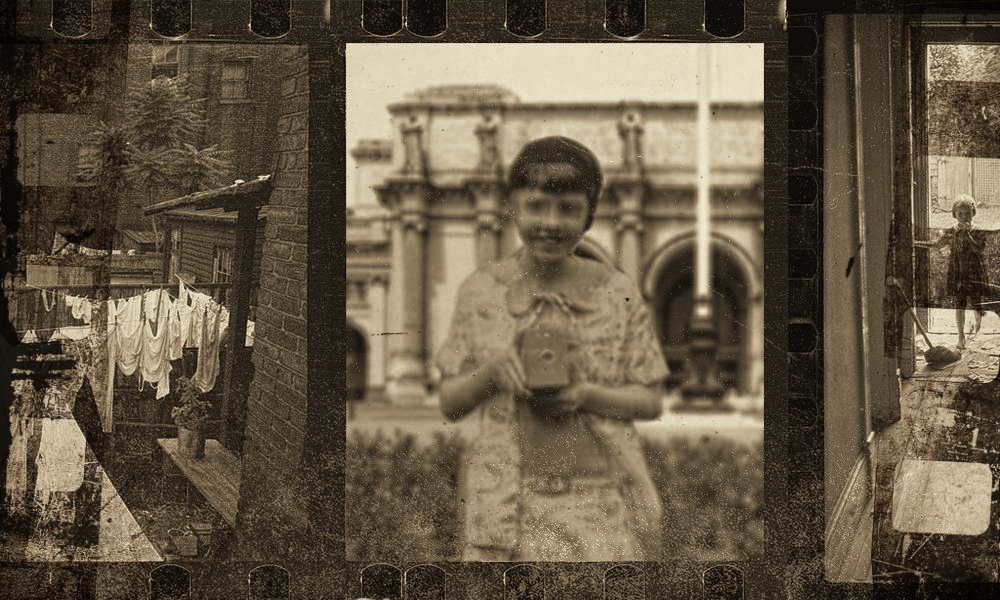

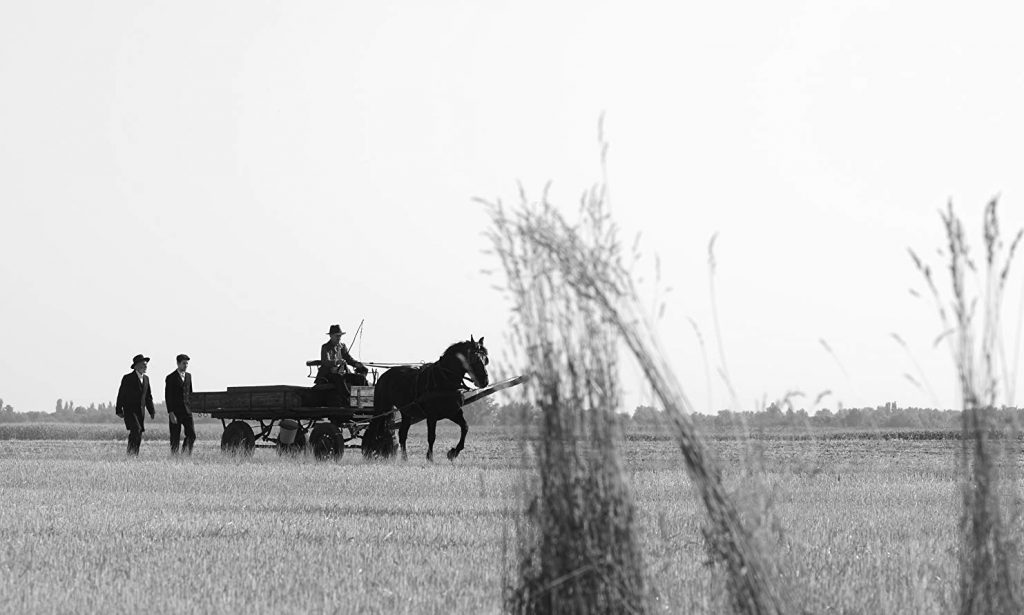



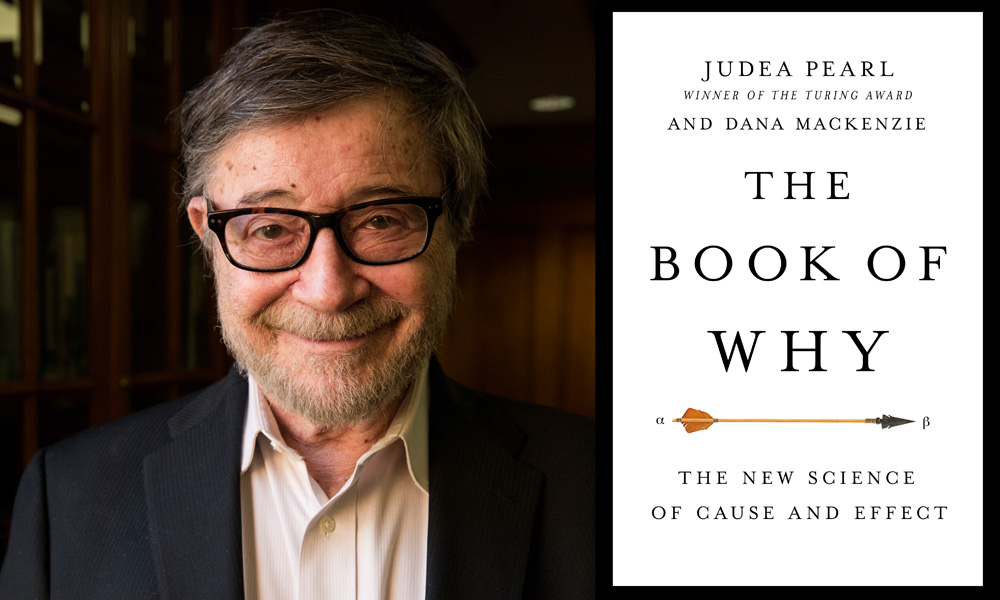

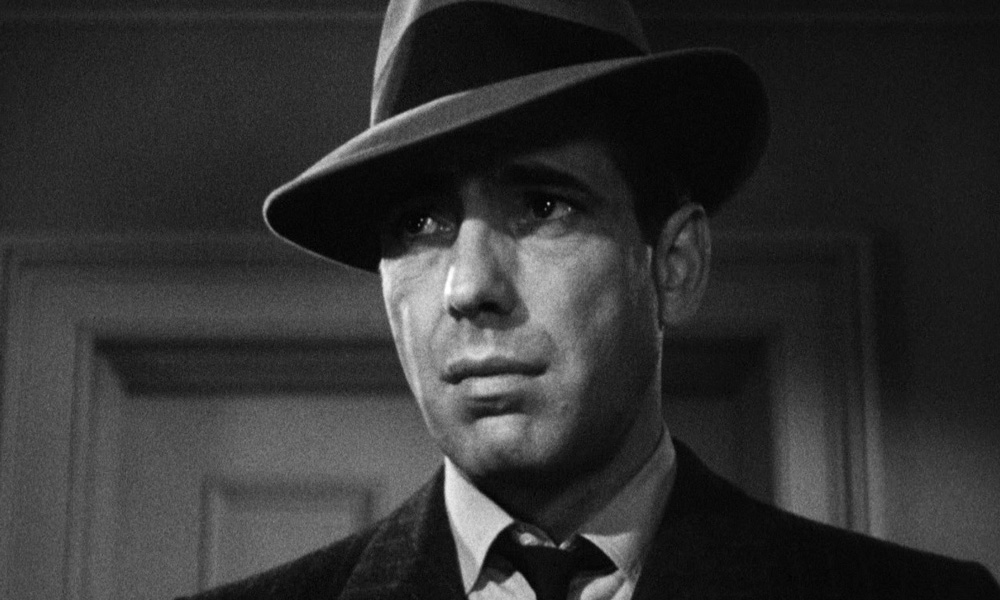

Wonderful story, Judith. I love the way you combine humor and humanity. My favorite line: “Religious belief is an art form. You can learn your lessons well, follow all the steps, but if you don’t have a talent for it — if it isn’t a part of your core, if it isn’t embedded in your soul — you will never truly master it.” Brilliant.